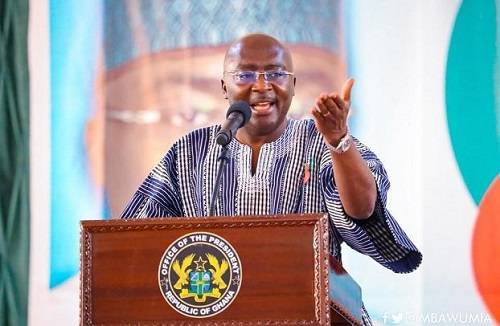ECG’s revenue collection shot up 122% over digitalisation – Bawumia
The Vice President, Dr Mahamudu Bawumia, has revealed that revenue collection at the Electricity Company of Ghana (ECG) shot up to a billion from GHC450 million monthly after the government’s digitalisation efforts.
Speaking at the 14th Commonwealth Regional Conference for Heads of Anti-Corruption Agencies in Africa, Dr Bawumia urged member states to emulate Ghana’s strategy of leveraging digital tools to fight corruption.
He bemoaned the introduction of malware into the system at its initial stages by staff of the ECG at the IT department.
“Can you believe that workers within the system sabotaged it, they put ransomware into the whole system. And the system essentially collapsed. We had to send in national security to eventually find that it was some of the staff at the IT department who were culpable.
He stressed, “We found the computer in which the ransomware was injected into the system. It took us a while to restore the system. They asked for a ransom actually for this to work. Can you imagine? That we should pay, they submitted a bill that we should pay for the system to work. Anyway, they were arrested.
“And we restored the system, and we digitized the system, and we said that no more cash payments for electricity in Ghana. You only pay with your mobile money or electronic bank transfers. So that is now the case. Can you believe that from GHC450 million a month, the collection has now gone to over a billion cedis a month?” he asked.
In July 2023, energy analyst Dr Yussif Sulemana called for the privatisation of the Electricity Company of Ghana’s revenue mobilisation arm to curtail the unending leakages and energy sector debts.
Speaking on the back of initial threats by the Chamber of Independent Power Producers (IPPs) to cut supply to the national grid from July 1 over a $1.73 billion debt owed to its members and its subsequent suspension of such threats, Dr. Sulemana said covering revenue leakages was the only way out.
“They always call for tariff increment, but I say it is not the way to go at this moment because the people are already overburdened. What we need to do is to cover the leakages, and if we do that, I don’t think this indebtedness to the IPPs will go away. There are a couple of ways we can do that.”
Dr. Sulemana argued that the privatization of the revenue arm of ECG would help curtail the government’s interference in the power distributor’s activities.
“We need to think about liberalizing the ECG,” he said. “When I say liberalizing ECG, I am not talking about privatizing it completely. We can look at a particular arm of it where we have the weak link, and the weak link of the ECG is revenue mobilization. So, if you bring in private sector participation within this arm, they can take care of the revenue mobilization, and it will dilute the government’s interference concerning state-owned enterprises indebtedness.”
He advised against the politicization of the energy sector and cautioned the ECG to commercialize Ghana’s excess energy capacity for export to generate revenue instead of going to waste.
“Within the generation sector, there is so much that we can do,” he said. “We should not play politics with the power sector. Excess capacity must be commercialized and exported to cut down the leakages.”


